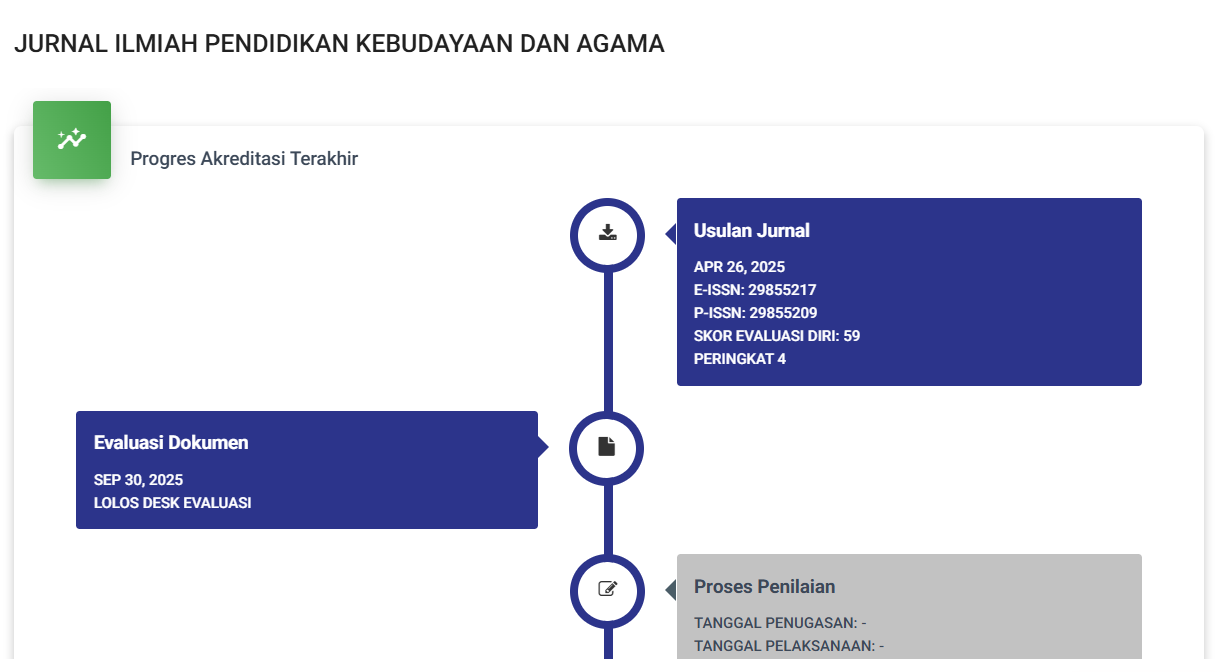PERKEMBANGAN AKHIR MASA ANAK-ANAK
DOI:
https://doi.org/10.59024/jipa.v2i1.498Abstract
Abstract. Children's development is usually accompanied by growth so it is more optimal and depends on a person's biological potential. This potential is the result of the interaction of various interrelated factors, namely genetic factors, bio-physical-psycho-social environment and behavior. The unique process and different end results give each child its own characteristics. This research uses a critical review method by reading various books, journals, or other publications related to the research topic discussed by comparing research methods, processing methods, and the results obtained from each article. The research results show that language development in late childhood can be seen from speech progress such as increasing vocabulary, forming sentences and pronunciation. In late childhood, language development reaches a higher level. Children are able to use more complex sentences. Emotional development in late childhood involves various changes and existence caused by learning experiences and self-understanding. Social development occurs quickly, and children begin to learn to adapt to their surroundings. Social development in children requires the role of parents, educators (teachers) and the environment in synergy to develop social aspects in children so that they are able to socialize with the surrounding environment.
References
Ahyani, L. N., & Astuti, D. (2018). Psikologi Perkembangan Anak dan Remaja. Kudus: Universitas Muria Kudus
Arlinda, S., Harahap, H. H., & Mulyana, H. (2022). Parenting and Social Development On Early Childhood Emotions. Interdisciplinary Scocial Studies, 1(10).
Desmita. (2005). Psikologi Perkembangan. Bandung: PT Remaja Rosdakarya
Devi, S. K., Dwijulianto, A., Istiqoma, A. P., Nabiel, M., Saefullah, D. R., Sagita, F., & Oktaviani, M. (2023). Parenting and Children's Emotional Development. International Journal of Business, Law, and Education, 4(1).
Fitniwilis, F., Nofriza, F., & Nurulita, E. (2022). Emotional Intelligence of Students Based on Birth Order. Jurnal Neo Konseling, 4(1).
Goleman, D. Emotional Intellegence. 1995: Jakarta, Gramedia.
Hurlock, E. B. (1980). Psikologi Perkembangan Suatu Pendekatan Sepanjang Rentang Kehidupan. Jakarta: ErlanHurl
Hurlock, Elizabeth B. Chiled Development. Tokyo: Mc. Graw Hill. Inc, 1978.
Havighurst, Robert J. (1978). Human Development and Education. New York : Longmans Green and Co.
Izzaty, R.E.(2019). Development of Children Aged 7-12 Years. Jurnal Pengabdian Universitas NegeriYogyakarta.
Jahja, Yudrik. (2021). Psikologi Perkembangan. Jakarta: Prenadamedia.Psikologi Perkembangan Anak dan Remaja.
Laurie M. Anderson dkk. (2022) The Effectiveness of Early Childhood Development Programs A Systematic Review. Preventive Services © 2003
American Journal of Preventive Medicine (jurnal)
Novitawati, & Permatasari, N. (2022). Psikologi Perkembangan Anak Usia Dini. Banjarmasin: Ahlimedia Press.
Prayitno, Elida. (2006). Buku Ajar Perkembangan Anak Usia Dini dan SD. Padang: Angkasa Raya
Santrock, J. W. (2007) Perkembangan anak.Jakarta: Penerbit Erlangga.
Santrock, J. W. (2010). Life - Span Development. New York: McGraw-Hill.
Thahir, A. (2018). Psikologi Perkembangan. Lampung. Erlangga
Shala, M. (2021). The Impact of Preschool Social-Emotional Development on Academic Success
Downloads
Published
Issue
Section
License
Copyright (c) 2023 Dwi Putri Lestari, Amelia Rahmi, Laila Sari

This work is licensed under a Creative Commons Attribution-ShareAlike 4.0 International License.










